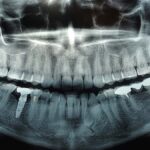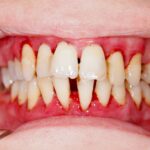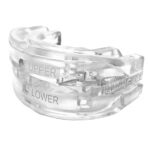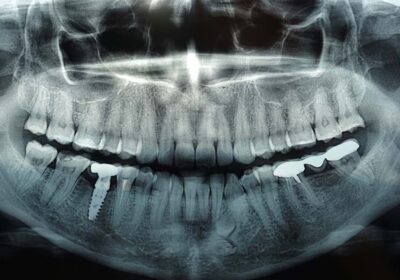
Maximizing ROI in Healthcare Marketing with Data-Driven Strategies
In the highly competitive landscape of healthcare marketing and hospital marketing, achieving a positive return on investment (ROI) is crucial for hospitals and healthcare organizations. With the growing emphasis on data-driven decision-making, leveraging data to optimize marketing strategies has become imperative. In this blog, we will explore the key insights and strategies to maximize ROI in healthcare marketing through data-driven approaches, focusing on data analytics, personalization, optimization of digital channels, and continuous testing and optimization.
Utilize Data Analytics for Informed Decision Making:
Data analytics plays a pivotal role in data-driven healthcare marketing. By harnessing the power of data, healthcare marketers gain valuable insights into their target audience. Analyzing demographic information, patient data, website analytics, and social media metrics allows organizations to understand their audience better. These insights help in tailoring marketing strategies and messages to specific segments, ensuring effective communication and increasing the likelihood of positive outcomes.
Personalize Marketing Campaigns for Higher Engagement:
Personalization has emerged as a key driver of engagement and conversion in healthcare marketing. By utilizing data analytics, healthcare organizations can segment their audience based on factors such as age, location, medical history, and preferences. This segmentation enables the delivery of personalized content and targeted offers that resonate with individual patients. Personalized marketing campaigns create a stronger connection with the audience, resulting in higher engagement and better ROI.
Optimize Digital Marketing Channels for Maximum Reach:
Digital marketing channels provide a wide array of opportunities for healthcare organizations to reach their target audience effectively. Leveraging data analytics allows marketers to identify the most impactful channels for their specific audience. By analyzing data and monitoring key performance indicators (KPIs), healthcare marketers can optimize their digital marketing efforts. This optimization ensures that resources are allocated to the channels that yield the highest ROI, resulting in improved visibility and greater audience engagement.
Implement Marketing Automation for Efficiency and Consistency:
Marketing automation has revolutionized healthcare marketing by streamlining repetitive tasks and improving efficiency. By automating processes such as email campaigns, lead nurturing, and customer relationship management, healthcare organizations can deliver consistent and personalized communication at scale. Marketing automation not only saves time and resources but also enhances the overall customer experience, leading to increased engagement and improved ROI.
Continuously Test and Optimize Strategies:
Data-driven marketing is an iterative process that requires continuous testing and optimization. By conducting A/B testing, analyzing results, and making data-driven adjustments, healthcare marketers can refine their strategies over time. Testing different messages, visuals, and channels enables organizations to identify what resonates best with their target audience. This iterative approach ensures that marketing efforts are continuously optimized, leading to better ROI and sustained success.
Conclusion:
Maximizing ROI in healthcare marketing necessitates the adoption of data-driven strategies. By leveraging data analytics, personalizing marketing campaigns, optimizing digital channels, implementing marketing automation, and continuously testing and optimizing strategies, healthcare organizations can achieve significant returns on their marketing investments. Data-driven approaches enhance audience targeting, engagement, and optimization, empowering healthcare marketers to make informed decisions and adapt to evolving market dynamics. Embracing data-driven strategies is essential for organizations seeking to maximize ROI in today’s competitive healthcare marketing landscape.
FAQs:
Q1: How does data analytics contribute to maximizing ROI in healthcare marketing?
A1: Data analytics provides valuable insights into the target audience, enabling healthcare marketers to make informed decisions and optimize marketing strategies. Organizations can tailor their campaigns and communications by understanding audience preferences, behavior patterns, and demographics, leading to better engagement and higher ROI.
Q2: Why is personalization important in healthcare marketing?
A2: Personalization allows healthcare organizations to connect with their audience more individually. Organizations can deliver personalized messages and offers by segmenting the audience based on demographics, preferences, and medical history. Personalization enhances engagement, builds trust, and ultimately increases ROI.
Q3: How can marketing automation improve ROI in healthcare marketing?
A3: Marketing automation streamlines repetitive tasks, enabling healthcare organizations to deliver consistent and targeted communication at scale. Organizations can save time, enhance efficiency, and provide a personalized experience by automating email campaigns and lead nurturing. Marketing automation improves ROI by increasing engagement, nurturing leads, and optimizing resource allocation.
Q4: Why is continuous testing and optimization important in data-driven healthcare marketing?
A4: Continuous testing and optimization allow healthcare organizations to fine-tune their marketing strategies based on data-driven insights. Organizations can identify the most effective approaches for their target audience by testing different messages, visuals, and channels. Continuously optimizing strategies ensures ongoing improvement, better audience engagement, and higher ROI.


















